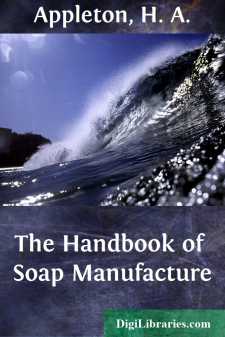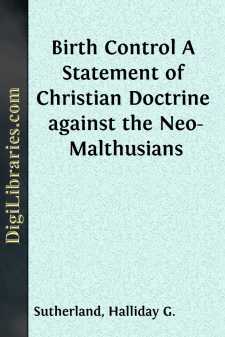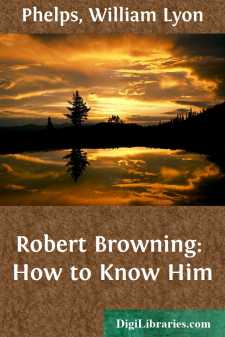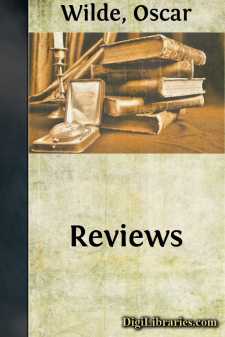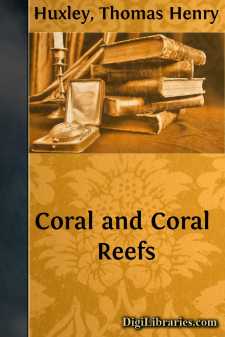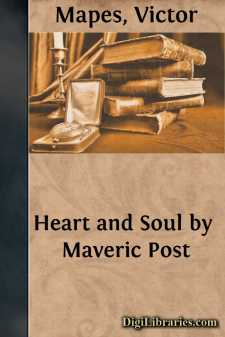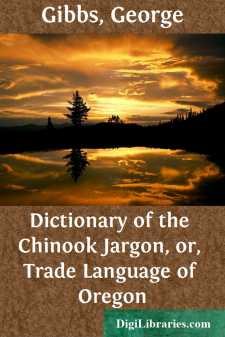Non-Classifiable
- Non-Classifiable 1768
Non-Classifiable Books
Sort by:
by:
Walter Crane
THE OLD YEAR being dead, and the NEW YEAR coming of age, wh: he does by Calendar Law, as soon as the breath is out of the old gentleman’s body, nothing would serve the young spark but he must give a dinner upon the occasion, to wh: all the Days in the year were invited. The Festivals, whom he deputed as his stewards, were mightily taken with the notion. They had been engaged time out of mind, they...
more...
by:
Hugo Munsterberg
CHAPTER I THE OUTER DEVELOPMENT OF THE MOVING PICTURES It is arbitrary to say where the development of the moving pictures began and it is impossible to foresee where it will lead. What invention marked the beginning? Was it the first device to introduce movement into the pictures on a screen? Or did the development begin with the first photographing of various phases of moving objects? Or did it start...
more...
by:
H. A. Appleton
INTRODUCTION. Definition of Soap—Properties—Hydrolysis—Detergent Action. It has been said that the use of soap is a gauge of the civilisation of a nation, but though this may perhaps be in a great measure correct at the present day, the use of soap has not always been co-existent with civilisation, for according to Pliny (Nat. Hist., xxviii., 12, 51) soap was first introduced into Rome from...
more...
CHAPTER I THE ESSENTIAL FALLACIES OF MALTHUSIAN TEACHING Section 1. MALTHUS AND THE NEO-MALTHUSIANS Birth control, in the sense of the prevention of pregnancy by chemical, mechanical, or other artificial means, is being widely advocated as a sure method of lessening poverty and of increasing the physical and mental health of the nation. It is, therefore, advisable to examine these claims and the...
more...
THE MAN If we enter this world from some other state of existence, it seems certain that in the obscure pre-natal country, the power of free choice—so stormily debated by philosophers and theologians here—does not exist. Millions of earth's infants are handicapped at the start by having parents who lack health, money, brains, and character; and in many cases the environment is no better than...
more...
by:
Oscar Wilde
INTRODUCTION The editor of writings by any author not long deceased is censured sooner or later for his errors of omission or commission. I have decided to err on the side of commission and to include in the uniform edition of Wilde’s works everything that could be identified as genuine. Wilde’s literary reputation has survived so much that I think it proof against any exhumation of articles...
more...
INTRODUCTION IT is strange that while literature occupies so much attention as at present, and while fiction is the largest division of our book-work, the oldest literature and fiction of the world should yet have remained unpresented to English readers. The tales of ancient Egypt have appeared collectively only in French, in the charming volume of Maspero's "Contes Populaires"; while some...
more...
THE subject upon which I wish to address you to-night is the structure and origin of Coral and Coral Reefs. Under the head of "coral" there are included two very different things; one of them is that substance which I imagine a great number of us have champed when we were very much younger than we are now,—the common red coral, which is used so much, as you know, for the edification and the...
more...
by:
Victor Mapes
DIAGNOSIS Many of us, to-day, are disturbed and alarmed by the point of view and the behavior of people about us—especially the younger generation. Girls of good family are seen on all sides, who smoke and gamble and drink and paint their faces and laugh with scorn at the traditions and conventions which their grand-parents regarded with almost sacred reverence. The young men are worse, if anything,...
more...
by:
George Gibbs
~PART I.~ CHINOOK-ENGLISH. NOTE.—The references, "Hale," "Cook," "Jewitt," are respectively toHale's "Ethnology of the United States Exploring Expedition," "Cook'sVoyages," and "Jewitt's Narrative." The others, as "Anderson," "Pandosy,""Shaw," "Tolmie," are from manuscript notes of those gentlemen...
more...




